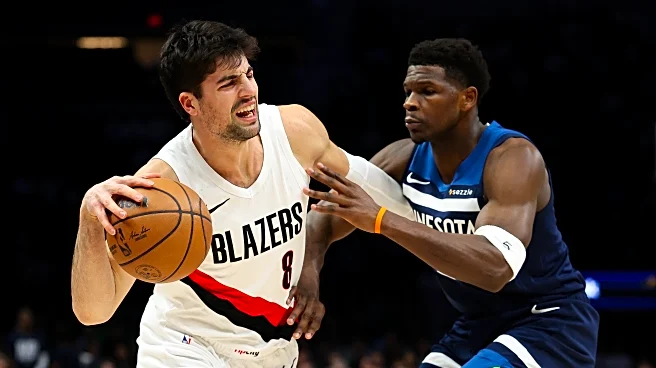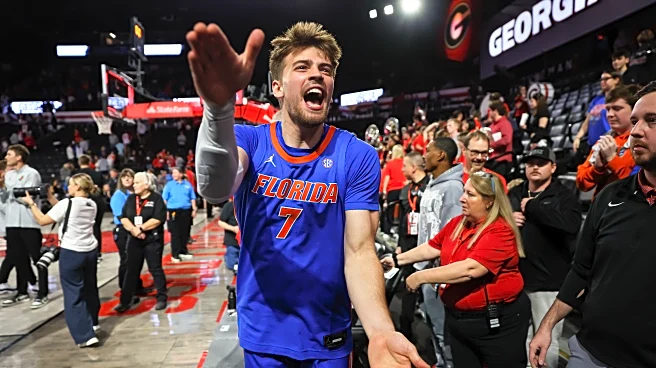What's Happening?
Owen Cooper, a 15-year-old actor, has made history by becoming the youngest male winner in any acting category at the Emmy Awards. Cooper won the award for Outstanding Supporting Actor in a Limited or Anthology Series or Movie for his role in the Netflix drama 'Adolescence'. He portrayed Jamie Miller, a teenage boy accused of murder. Cooper's win breaks the previous record held by Scott Jacoby, who was 16 when he won in 1973. During his acceptance speech, Cooper expressed disbelief and gratitude, emphasizing the importance of stepping out of one's comfort zone to achieve success.
Why It's Important?
Cooper's achievement is significant as it highlights the evolving landscape of television and the opportunities available to young actors. His win may inspire other young talents to pursue acting, demonstrating that age is not a barrier to success in the entertainment industry. It also underscores the growing recognition of diverse narratives and performances in television, potentially influencing casting decisions and the types of stories that are told. Cooper's success could lead to increased interest in youth-centric roles and stories, impacting how networks and streaming services develop content.
What's Next?
Following his Emmy win, Owen Cooper is set to appear as Young Heathcliff in Emerald Fennell's adaptation of 'Wuthering Heights', alongside Margot Robbie and Jacob Elordi. This role could further establish Cooper's career and open doors for more significant opportunities in film and television. The industry may also see a shift towards casting younger actors in prominent roles, reflecting a broader trend of diversifying talent and narratives. Cooper's future projects will be closely watched by industry insiders and fans alike.
Beyond the Headlines
Cooper's win may prompt discussions about the representation of young actors in Hollywood and the pressures they face. It raises questions about the support systems in place for young talent and how the industry can nurture their growth while protecting their well-being. Additionally, Cooper's success could influence cultural perceptions of youth and talent, encouraging a reevaluation of age-related stereotypes in the entertainment sector.











